
The Science of
Environmental Comfort
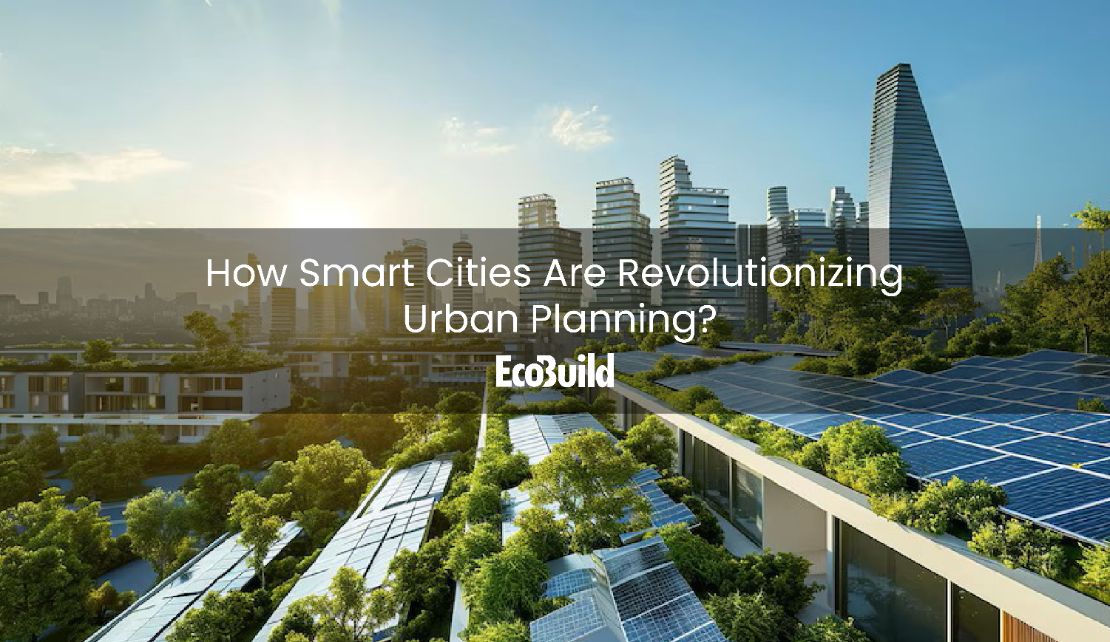
A futuristic sustainable cityscape Photo: freepik
INSIGHT JAN 27, 2025
How Smart Cities Are Revolutionizing Urban Planning
Introduction: The Rise of Smart Cities in a Sustainable Future
Cities today face immense challenges: growing populations, resource scarcity, and the urgent need to reduce carbon emissions. The solution? Smart Cities—urban environments that leverage technology, data, and innovation to create sustainable, efficient, and livable spaces for everyone.
At ECOBUILD, we’re proud to be at the forefront of this transformation. Our Smart Cities Advisory integrates cutting-edge technology and sustainable urban planning to help cities meet their environmental goals while improving quality of life. In this blog, we’ll explore how Smart Cities are shaping the future and how ECOBUILD is leading this revolution.
WHAT IS A SMART CITY?
A Smart City uses technology and data to optimize the efficiency of urban systems and services, focusing on:
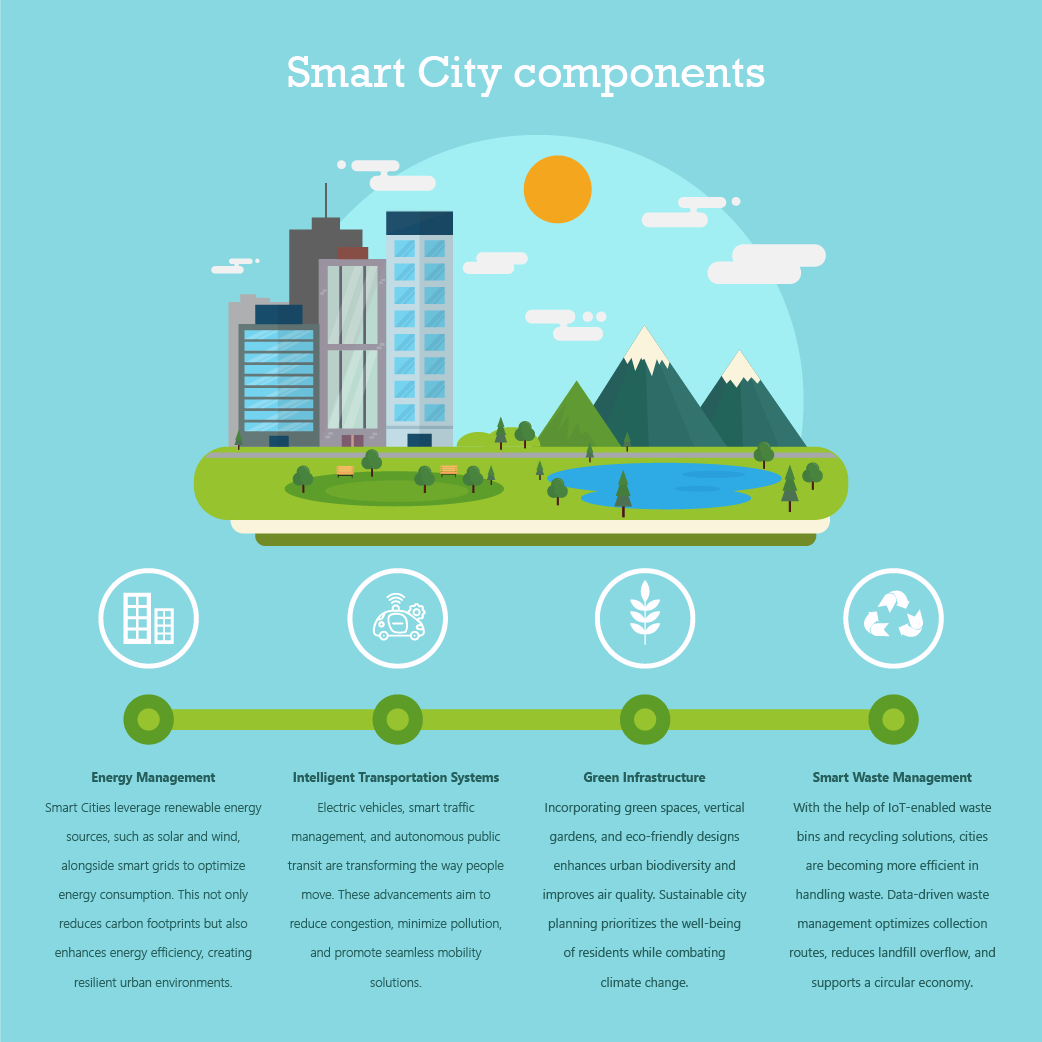
Smart city components @ECO BUILD
HOW SMART CITIES REVOLUTIONIZE URBAN PLANNING?
1. Data-Driven Decision-Making:
Smart cities collect and analyze real-time data from sensors, IoT devices, and city systems to make informed decisions.
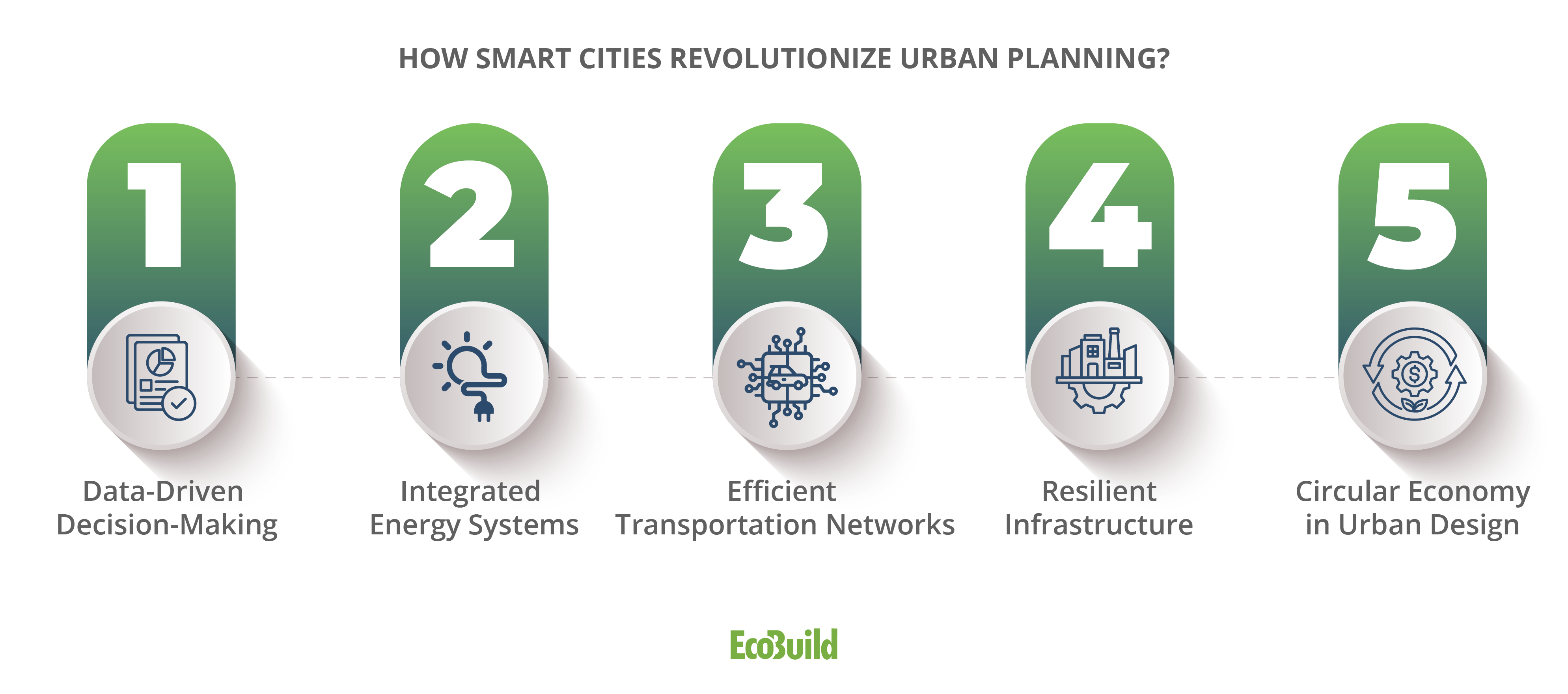
ECOBUILD PLAY'S ROLE IN ADVANCING SMART CITIES
1. Smart City Planning and Advisory:
ECOBUILD collaborates with governments, developers, and urban planners to design sustainable, tech-enabled cities that meet global climate goals. Our services include:
2. Sustainable Transportation Systems:
We provide expertise in designing low-carbon mobility systems, including electric vehicle infrastructure, smart transit hubs, and pedestrian-friendly spaces.
3. Green Infrastructure Implementation:
Our team specializes in integrating green roofs, urban forests, and other ecological solutions to create healthier urban environments.
4. Climate Resilience Strategies:
Through advanced modeling and risk assessments, we help cities prepare for climate impacts, ensuring infrastructure and communities are future-ready.
5. Community Engagement and Inclusion
ECOBUILD prioritizes creating cities for people by involving communities in the design process and ensuring equal access to smart systems.
ECOBUILD’S IMPACT IN SMART CITY DEVELOPMENT
In partnership with Masdar City, ECOBUILD played a key role in designing a Net Zero urban district:
WHY SMART CITIES MATTER FOR SUSTAINABILITY?
Smart Cities are not just a vision of the future—they’re a necessity for addressing today’s environmental challenges. By optimizing resources, minimizing waste, and enhancing urban resilience, Smart Cities provide a roadmap to a sustainable, equitable future.
At ECOBUILD, we’re passionate about turning these aspirations into reality through innovation, collaboration, and expertise.
💡 Contact us today to explore how we can support your smart city initiatives.

The Science of
Environmental Comfort
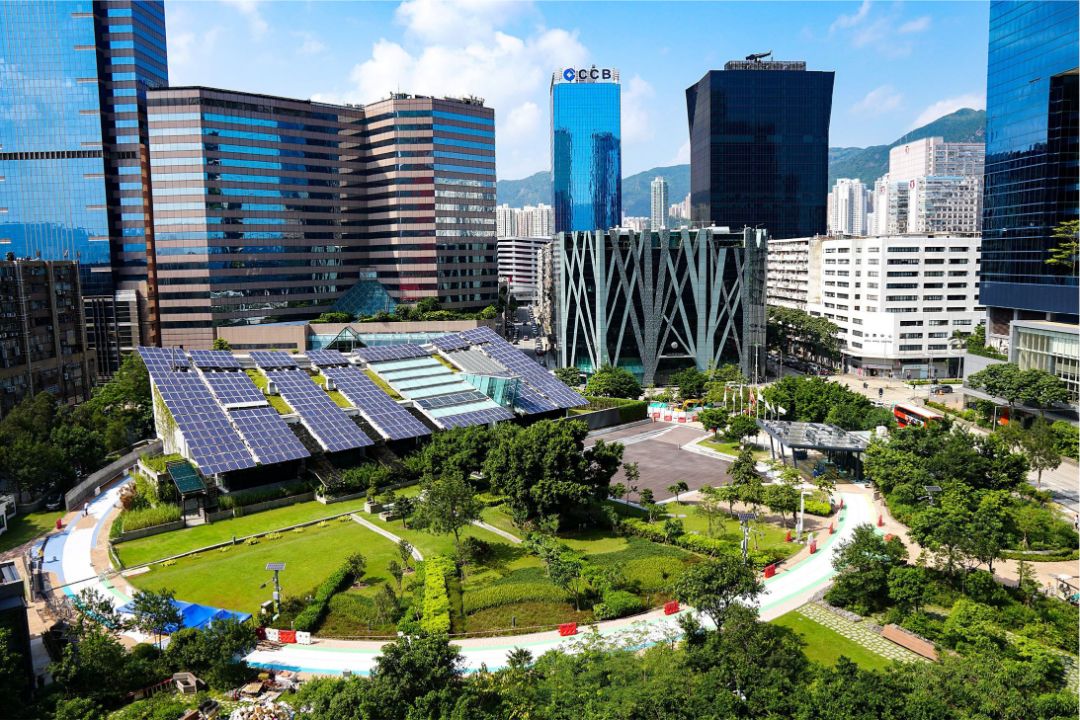
Microclimate
Modelling
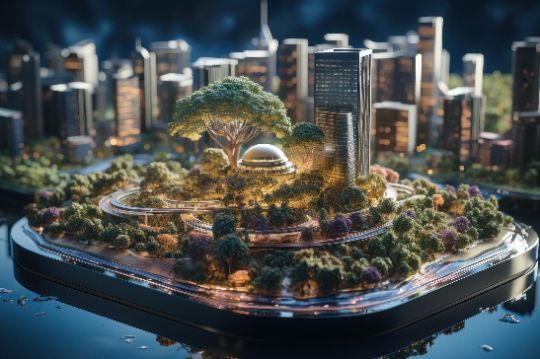
Envisioning
Smart Cities
Let’s Build Smarter Cities Together